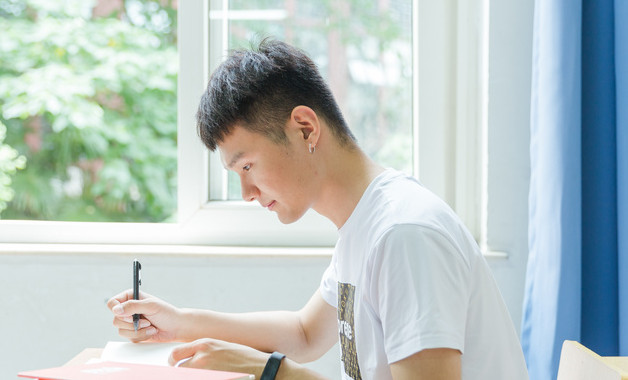
第1篇 奥巴马总统、第一夫人米歇尔·奥巴马2022年圣诞节英语演讲稿
the president: hello everybody, and happy holidays.
the first lady: we know how busy this time of year is for everyone, so we’re not going totake much of your time.
but we did want to take a moment to wish you all a merry christmas, from our family to yours.
the president: this is a season for millions of americans to be together with family, tocontinue long-held holiday traditions, and to show our gratitude to those we love. and alongthe way, some of us might even watch a little basketball or eat some christmas cookies, too.
the first lady: here at the white house, over the past few weeks, we’ve had about 70,000people from all across the country come visit us and look at our holiday decorations.
this year’s theme was “gather around: stories of the season.”
and in every room of the house, we tried to tell a story about who we are as americans and howwe celebrate the holidays together.
and we made cert__n to highlight some of the most powerful stories we know—the stories ofour outstanding troops, veterans, and military families and their service and sacrifice for ourcountry.
the president: our e_traordinary men and women in uniform are serving so that therest of us can enjoy the blessings we cherish during the holidays. but that means many of ourtroops are far from home and far from family. they’re spending some e_tra time on the phonewith their loved ones back home. or they’re setting up video chats so they can watch as thepresents are opened. so today, we want all of our troops to know that you’re in our thoughtsand prayers this holiday season.
and here’s the good news: for many of our troops and newest veterans, this might be the firsttime in years that they’ve been with their families on christmas. in fact, with the iraq war overand the transition in afghanistan, fewer of our men and women in uniform are deployed inharm’s way than at any time in the last decade.
the first lady: and that’s something we all can be thankful for.
and with more and more of our troops back here at home, now it’s our turn to serve—it’s ourturn to step up and show our gratitude for the military families who have given us so much.
and that’s why jill biden and i started our joining forces initiative—to rally all americans tosupport our military families in ways large and small.
and ag__n and ag__n, we have been overwhelmed by the response we’ve gotten as folks fromacross the country have found new ways to give back to these families through their schools,businesses, and houses of worship.
the president: that’s the same spirit of giving that connects all of us during the holidays.so many people all across the country are helping out at soup kitchens, buying gifts for childrenin need, or organizing food or clothing drives for their neighbors. for families like ours, thatservice is a chance to celebrate the birth of christ and live out what he taught us – to love ourneighbors as we would ourselves; to feed the hungry and look after the sick; to be our brother’skeeper and our sister’s keeper. and for all of us as americans, regardless of our f__th, those arevalues that can drive us to be better parents and friends, better neighbors and better citizens.
the first lady: so as we look to the new year, let’s pledge ourselves to living out thosevalues by reaching out and lifting up those in our communities who could use a hand up.
the president: so merry christmas, everyone. and from the two of us, as well as malia,sasha, grandma, bo…
the first lady: and sunny, the newest obama.
the president: we wish you all a blessed and safe holiday season.
the first lady: happy holidays everybody, and god bless.
第2篇 米歇尔·奥巴马在2022年大学机会峰会英语演讲稿
thank you. (applause.) thank you all so much. thank you. well, you guys rest yourselves. you’ve been very busy. (laughter.) you’re being spoken to a lot. i hear my husband was here. (laughter.) but it is truly a pleasure to be here with all of you today, and i want to thank you so much for joining us for this year’s college opportunity day of action. you should be proud. we’re already proud of you, and this day has just already been a tremendous success.
of course i want to start by thanking homero. i mean, he’s just an amazing story, an amazingperson, and i’m grateful for that wonderful introduction. we have to give him another round ofapplause. (applause.) a clear reminder of why we’re here today and what we’re working for.
i also want to recognize the jack kent cooke foundation, as well as the lumina foundation, forhelping to make this event possible. let’s give them a round of applause as well. (applause.)
and of course, as we come together to talk about the importance of college counseling, iespecially want to recognize all of the school counselors here today. yes! (applause.) you canr__se the roof for yourselves. a little r__sing the roof. (laughter.) but i think we can all agreethat all of our counselors, all of you have one of the hardest, but most important jobs in oureducation system, yet too often you don’t get the resources, the support or the appreciationthat you need and deserve. and that has serious consequences not just for our kids, but forour country.
i mean, let’s be honest with ourselves – when it comes to college counseling in our nation’sschools, there are two worlds. as many of you know, while the american school counselorassociation recommends no more than 250 students per counselor, the national average is onecounselor for every 471 students. so too many of our kids go through high school with little, ifany, real guidance on how to get into college.
they don’t know what classes to take, or how to prepare for the sat or the act. no one helpsthem decide which colleges to apply to. no one reviews their applications. and plenty of kidshave no idea that they’re eligible for financial __d, so they assume they just can’t afford college,and they don’t even bother to apply.
now, that’s one world. the other world is much smaller – it’s a world of schools where thequestion isn’t where students are going to college, but – or whether they’re going to college,but where. kids in this world start preparing for college long before they even start high school.and from the first day of freshman year, they’ve been shepherded through every step of theprocess. they’ve got sat and act prep courses, they take those tests ag__n and ag__n toimprove their scores. counselors have much smaller caseloads, and they walk kids throughevery deadline, they edit every draft of their essays. honestly, when barack and i talk aboutthis, we look at the kind of college counseling many of the kids are getting today and we wonderhow we ever managed to get ourselves into college.
so the fact is that right now, a small number of students are getting every advantage in thecollege admissions race, while millions of other students who are just as talented can’t evenbegin to compete. (applause.) and as the college presidents here all know, the result is thatcolleges aren’t always getting all of the very best students. they’re getting the students whocan best afford to succeed in this system. and we are leaving behind so many bright, hungry,promise-filled kids. we are depriving ourselves of so much human potential in this country –from the scientific discoveries these kids might make, to the businesses that they might build,to the leadership that they might one day show in our communities.
we’re missing all of that. we’re also losing all of that simply because we aren’t making the basicinvestment in their future today, and that’s a tragedy. it’s a tragedy for our country. it’s atragedy for those kids and for their families, because we all know – we know – that if you wantto secure a decent-paying job in today’s economy, a high school diploma simply isn’t enough.
so unlike 40 or 50 years ago, higher education is no longer just for kids in the top quarter orthe top half of the class, it has to be for everyone. so we are going to need a college-counselingsystem that reflects this new reality. (applause.)
now, that’s easier s__d than done. we know that this isn’t going to happen overnight. we knowthat states and school systems are facing all kinds of budget challenges. but one of my coremessages to students through my reach higher initiative is that no matter what is going on attheir school or in their family, i’ve been trying to tell kids that no matter what resources theymay have or not have, that they still need to take responsibility for their education. i tell themthat they need to do the work to reach out to teachers who can help them. they need toresearch schools in their communities on their own. they need to find that fafsa form onlineand fill it out.
so my message to all of you is the same: we all need to step up and do what we can with theresources we have, especially when it comes to supporting our school counselors. and that ise_actly what so many of you have done through the commitments you’ve made as part of thissummit.
universities across the country have pledged to create college and career-readiness courses intheir masters programs for school counselors. school districts are partnering with nonprofits andcolleges to provide tr__ning for counselors once they’re in our schools. nonprofits are steppingup to improve student-and-counselor ratios and bringing recent graduates into schools toserve as role models and mentors.
and these are just the highlights. altogether, these commitments represent tens of millions ofdollars that will impact hundreds of schools and countless students. these are outstandingcommitments, and we need more efforts like these all across this country. every one of us has arole to play.
so for the superintendents here today, i know you all are struggling with so many demandsunder such tight budgets, but can you do more to support your counselors? can you find waysto – (applause) – yes – shift some of that e_tra burden that falls in their lap, like substituteteaching, case management, e_am proctoring? can you give them more time to actuallycounsel students?
to the college presidents here, can you do even more to make college counseling part of yourmission to get the very best students to your schools? and can the foundations and nonprofitorganizations help in that work? can you rethink the college admissions process to find more ofthose students who’ve got what it takes to succeed but haven’t had the chance to develop theirpotential? can you create college prep centers in your communities and ensure that test-prepclasses are affordable for all of our kids?
and for those of you who are concerned that perhaps this type of involvement might falselyr__se hopes of admission to your school – because i’ve heard that as well – just consider the factthat while many of the kids you help might not be the right fit for your college or university,but they will be the right fit for another school, and maybe that other school will help preparestudents for admission to your school. (applause.)
so this is really a collective effort, and everyone can benefit. and as you all step up to take onthese issues, really, i really want to hear about what you’re doing. and that’s one of the reasonswhy i recently announced two new reach higher commencement challenges. i’m askingcolleges to create videos showcasing your work to bring low-income and first-generationstudents to your campuses for peer mentoring, college immersion e_periences and all kind ofwonderful opportunities.
and for the high schools, i want to see videos about what you’re doing to increase your fafsacompletion rates to help more students afford college. and for those schools with the winningvideos, i just might pay a visit around commencement time, if you know what i mean – (laughter) – to let you know how impressed i am.
so i hope that you all will go to reachhigher.gov and get more information, because i’m eagerto see what you all are doing. i know you’re going to do some great things. you see, i know thatthe smallest, most local efforts can make such a difference in the lives of our young people.
and i’m thinking today of a school called la cueva high school in albuquerque, new me_ico. afew years ago, the college counseling staff at that school met with a young woman namedroberta gutierrez during her sophomore year. roberta was an e_cellent student, so they urgedher to take the psat and come up with a list of colleges that she wanted to apply to. now, whileroberta took the test, she never came up with that list – and i’m sure you know why.
but then, at the beginning of roberta’s school year, her counselors learned that she had beennamed a national merit semi-finalist with a psat score in the top 1 percent of the entire state.so the counselors – yes, good stuff – (applause) – the counselors immediately informedroberta that she would be eligible for thousands of dollars in scholarships. and roberta, ofcourse, she was shocked. she told them that she never made the list of colleges because herfamily lived from paycheck to paycheck, so she didn’t think she could afford tuition. she toldthem that just to pay the $15 fee to take the psat, she had to skip lunch for a week.
and after meeting with roberta, the counseling staff decided that no student at their schoolwould ever ag__n have to choose between eating and taking a test that opens the doors tocollege. so they now hold fundr__sers – yes. (applause.) they hold fundr__sers throughout theschool year to ensure that low-income students can take the psat for free. and they go out oftheir way to tell every family about the financial __d resources that are av__lable for college.
and as for roberta, she is now in her junior year on a full scholarship at the university of newme_ico, and she’s planning to get a phd in psychology – yes. (applause.)
you all know these stories. there are so many kids just like roberta all across this country, andthey’re bright. these kids are determined. these are the kids who have everything it takes tosucceed if we would just give them that chance. and that’s what the counselors and leaders atla cueva high school did for roberta – they gave her a shot at the future she deserved.
and just think about the ripple effect that those counselors will have in transforming just onestudent’s life. think about the difference roberta can make when she gets that phd. think of allthe patients she might treat, all the groundbreaking research she might do. think of the rolemodel that she will be – she already is – inspiring countless young people just like her topursue their dreams.
there are millions of young people like roberta all across this country, and they are counting onus to step up for them. they’re counting on us to give them opportunities worthy of theirpromise. and that is e_actly what all of you are doing every single day. that is the purpose ofthe commitments that you’ve made as part of this summit. that’s why i’m proud and honoredto be here.
and i want to close today simply by saying thank you, truly. thank you. thank you for yourpassion. thank you for your dedication. thank you for your tremendous contributions to thiscountry. i look forward to continuing our work together. we got a lot more stuff to do. and icannot w__t to see all that you are going to achieve in the months and years ahead.
so thank you so much. keep it up. and let’s bring more people to the table. you all take care.thanks so much. (applause.)
第3篇 米歇尔·奥巴马在欧柏林学院毕业典礼英语演讲稿
hi! how are you all doing? are you sure?well, let me just tell you, it is beyond a pleasure and an honor to be here with all of you today.
i want to start by thanking president krislov for that very kind introduction, as well as all of thetrustees, the faculty, the staff here at oberlin. i also want to tell you how proud and how movedi am to receive this honorary degree from this particular school – the first college in americato officially embrace the admission of black students, and the first co-ed school to grantbachelor's degrees to women. (applause.)
i should be here today. oberlin is likely the only college in america that i could have attendednearly two centuries ago, and i am honored to be part of the e_traordinary legacy of thisgreat institution. (applause.)
i also want to take a moment on this memorial day to pay tribute to all of the brave men andwomen who have sacrificed their lives so that we could sit here today, at peace, with rights andfreedoms that others around the world can only dream of. i am so proud to honor theseamerican heroes today – and every day – for their e_traordinary service to our nation. (applause.)
and i'm also a little giddy to be joined on stage by another one of my heroes, marian wrightedelman. (applause.) her moral leadership on behalf of children in this country has inspiredme throughout my career, as well as my husband, the president of the united states. (applause.)
and, graduates, i think we should give another shout-out to your families, of course, all thefamilies. (applause.) these are the folks who pushed you and supported you. they answeredyour late-night phone calls even when you were just calling for money. (laughter.) so on behalfof your students, i just want to show you all some love today, as well. thank you for creatingthese fabulous individuals. well done. (applause.)
and finally, most of all, i want to congratulate the oberlin class of __! (applause.) look atyou! you made it! you're here! you're looking good! (applause.) and i know you worked hard tomake it to this moment, didn't you? (laughter.) staying up late writing those papers, studyingfor e_ams. spent hours practicing and performing. you went to countless happy hours, andhappy-happy hours at the feve i hear – (laughter) – i'm going to try one of those burgers forlunch today; that's all i'm going to have – (laughter) – where of course, parents, that's wherethey studied some more.
and on top of all of that, you spent thousands of hours giving back to this community –tutoring kids, playing music for seniors, serving food to folks in need, and of course, mentoringthe local young people back there – i see you all – through the ninde scholars program. soproud of you all back there.
and that's, as the president s__d, why i'm here today. (applause.) as he mentioned, my officedid this wonderful competition to highlight colleges that are helping underserved youngpeople graduate from high school and then go on to higher education. so by providing tutoringand act prep classes, financial __d workshops, and so much more, your ninde scholars programstood out as a shining e_ample of how schools like oberlin can lift first-generation students intocollege.
so i'm here today because i'm proud of you all. i really am. i'm inspired by yourcommitment to service and social justice. and i'm impressed by the community that youall have created here – a warm, supportive, inclusive community that embodies the valuesthat define this school.
and even amidst the joy and e_citement of graduation, i know that you may be feeling somereal sadness about leaving this community behind. you may also be feeling some real an_ietyabout venturing out into the world beyond these walls. and i'm not going to lie to you – formany of you, this is going to be a pretty big transition. in fact, i think dr. martin luther kingdescribed it well in his commencement address in '65 when he declared, “today you bidfarewell to the safe security of the academic environment. you prepare to continue yourjourney on the clamorous highways of life.”
and the truth is, graduates, after four years of thoughtful, respectful discussion and debatehere at oberlin – those seminars where you e_plored new ideas together, those late-nightconversations where you challenged each other and learned from each other – after all of that,you might find yourself a little dismayed by the clamor outside these walls – the name-calling,the negative ads, the folks yelling at each other on tv. after being surrounded by people whoare so dedicated to serving others and making the world a better place, you might feel a littlediscouraged by the polarization and gridlock that too often characterize our politics and civiclife.
and in the face of all of that clamor, you might have an overwhelming instinct to just runthe other way as fast as you can. you might be tempted to just recreate what you had here atoberlin – to find a community of like-minded folks and work with them on causes you careabout, and just tune out all of the noise. and that's completely understandable. in fact, isometimes have that instinct myself – run! (laughter.)
but today, graduates, i want to urge you to do just the opposite. today, i want to suggest thatif you truly wish to carry on the oberlin legacy of service and social justice, then you need torun to, and not away from, the noise. (applause.) today, i want to urge you to actively seekout the most contentious, polarized, gridlocked places you can find. because so often,throughout our history, those have been the places where progress really happens – the placeswhere minds are changed, lives transformed, where our great american story unfolds.
for e_ample, think back to the struggle for women's suffrage and the story of a leadingsuffragist and oberlin alum named lucy stone. (applause.) people screamed at her. they spaton her. they even threw prayer books at her as she tried to speak. her opponents declaredthat letting women vote was “unnatural,” would lead to child neglect and all kinds of social ills.so i'd say that debate was pretty polarized, wouldn't you?
and think about president roosevelt's struggle to pass the new deal a few decades later. fdr'splan for social security was called “socialist,” a “fraud on the workingman.” one opponenteven stated that it would “end the progress of a great country.” so that debate was prettycontentious, too.
and in the years before dr. king addressed those oberlin graduates in ‘65, he and hiscolleagues faced fire hoses and dogs in montgomery, beatings on a bridge in selma, insults andassaults as they sat quietly at lunch counters and marched peacefully down public streets.
and if you think today's gridlock is bad, let me remind you that it was a good century betweenthe signing of the emancipation proclamation and the passage of the civil rights legislation ofthe 1960s. and of all the women at the seneca falls women's suffrage convention in 1848,just one lived to see women cast their votes. just one.
but these folks didn't let the ugliness and the obstacles deter them. they didn't just give upand retreat to the comfortable company of like-minded folks, because they understood that thisis how democracy operates. it is loud and messy, and it's not particularly warm and fuzzy. andbelieve me, i know this from personal e_perience. (laughter.) over the years, i've occasionallyrun into the noise myself. but i've come to realize that most of that clamor is really comingfrom just a handful of very loud folks out on the fringes.
see, the truth is that the overwhelming majority of people in this country are open-mindedand big-hearted. they are smart enough to see through that noise, and they are so hungry forvoices that rise above it – smart, compassionate, thoughtful voices like yours.
now, the process of democracy might not always be as fast or as smooth as we'd like. but thefact is, it works. generation after generation, this country has become more equal, moreinclusive, more f__r, more free. my life and so many of your lives are a testament of that truth.but that has only happened because folks like all of you left their comfort zones and madetheir voices heard.
just look at the story of oberlin college. the founders of this school didn't just decide to admitwomen and african american students and then pat themselves on the back and say “job welldone.” no, even in those early days, folks here at oberlin were attending anti-slavery meetings,shivering on rough wooden benches in unheated, unfinished buildings. they were joining theequal suffrage league and speaking out for women's right to vote.
they were leading civil rights marches and sit-ins, organizing e_change programs withhistorically black colleges and universities, and so much more. because they knew it wasn'tenough to welcome women and african american students to oberlin if they would onlygraduate in four years to be second-class citizens in their own country. they knew that ourpolicies matter. they knew that our laws matter. and i know, as president krislov understands,that electing the right folks matters – it matters a lot.
now, i don't know whether your president knows what i was going to say today, but i know thathe had some kind words for you all about this issue. but it's no coincidence that we're bothurging you to get involved in civic life. because we both know that you cannot fully achieveyour goals of service and social justice if you turn away from politics and public policy.
you see, it's wonderful to volunteer at your local homeless shelter – please do that – but youalso need to attend the city council meetings and make sure the zoning laws don't shut thatshelter down. (applause.) are you thinking of teaching in an under-served school? if so, i'mglad to hear that. so many kids need you. but you've also got to elect good people to yourschool board and state legislature, because they decide whether you have the resources youneed to inspire and empower your students. (applause.)
are you planning to rally for marriage equality on the steps of the supreme court? i cert__nlyhope so. (applause.) but i also hope you will knock on doors and make some calls to elect apresident who shares your values. because that president will ultimately choose the justiceswho decide those cases in the first place. (applause.)
and finally, while peaceful protest can be powerful, if we truly want to reform our criminaljustice system, then we need to come together and do the hard work of changing our laws andpolicies to reflect our values. (applause.)
now, will this be easy? no, of course not. it will be hard. it will be stressful and frustrating,and you'll probably have to make some p__nful compromises along the way. after all, lucystone spent years speaking out for partial suffrage – for allowing women to vote only onthings like school issues and local issues – because she realized that full suffrage was just toocontroversial.
and fdr? well, after facing all kinds of opposition, he eventually agreed to a social securityplan that covered only 60 percent of workers. was he thrilled about that? probably not. but inthe end, fdr realized that 60 percent was a whole lot better than zero percent.
now, did these compromises make these leaders sellouts? tr__tors to their cause? i don't thinkso. instead, i think they knew that if they could just get everyone to take that first step, thenfolks would keep on moving in the right direction. and they also understood that often, thebiggest, most dramatic change happens incrementally, little by little, through compromisesand adjustments over years and decades.
and i know that these days, that can seem counterintuitive, because we live in such aninstantaneous age. we want everything right away – whether it's an uber or your favorite tvshow – and we want it t__lored to our e_act preferences and beliefs. we fill our twitter feed withvoices that confirm, rather than challenge, our views. if we dislike someone's facebook post,we just un-follow them, we un-friend them.
and even here at oberlin, most of the time you're probably surrounded by folks who share yourbeliefs. but out in the real world, there are plenty of people who think very differently than youdo, and they hold their opinions just as passionately. so if you want to change their minds, ifyou want to work with them to move this country forward, you can't just shut them out. youhave to persuade them, and you have to compromise with them. that is what so many of ourheroes of history have done.
folks like lucy stone and fdr, they didn't get caught up in their egos or their ideology. theydidn't say “it's my way or the highway.” instead, they knew where they wanted to go, and theywere strategic and pragmatic about getting there. because in the end, they understood, asthe political scientist joseph nye once s__d, that “the absolutist may avoid the problem of dirtyhands, but often at the cost of having no hands at all.”
and, graduates, with a degree from this amazing school, and all the status and connectionsthat degree confers, you don't get to have no hands. no, you don't get to be precious orcautious or cynical. no, not when the earth is warming and the oceans are rising. you don'tget to be cynical. not when too many young people still languish in communities ripped apartby violence and desp__r. not when women still make less than men for the same work. notwhen millions of girls across the globe never set foot inside a school. (applause.) no, not whenmany young people just like you – the men and women we honor this memorial day – havesacrificed their lives for your freedom to make your voice heard. you don't get to have no hands.
you see, in his speech to those oberlin graduates 50 years ago, dr. king urged them, as julias__d, not to sleep through the civil rights revolution that was raging across this country. and,graduates, climate change, economic inequality, human rights, criminal justice – these arethe revolutions of your time. and you have as much responsibility and just as much power towake up and play your part in our great american story. because it is absolutely still possibleto make a difference. the great moments of our history are not decades in our past; they'rehappening right now, today, in our lifetimes.
just think about the folks who are winning those battles state by state, city by city to ensurethat everyone in this country can marry the person they love. (applause.) think about how just10 years ago, gay marriage was legal in just one state in this country – just one – and today, itis legal in 37 states and washington, d.c. (applause.)
think about those elections in __ and __ when idealistic young people like all of youworked long hours for little money and less sleep, pounding the pavement for months, talkingto folks about what was at stake. think about the millions of folks who got out to vote onelection day, w__ting in the cold and r__n in lines that stretched for hours, refusing to leaveuntil they made their voices heard.
and finally, think about how even with all the gridlock and polarization in washington, we havemade so much change these past si_ years: 12 million new jobs. si_teen million people whofinally have health insurance. historic agreements to fight climate change. epic increases incollege financial __d. more progress on lgbt rights than any time in our history. (applause.)and today, it is no longer remarkable to see two beautiful black girls walking their dogs on thesouth lawn of the white house lawn. that's just the way things are now. (applause.)
see, graduates, this is what happens when you turn your attention outward and decide to bravethe noise and engage yourself in the struggles of our time. and that's why, in his remarks 50years ago, dr. king urged the class of ‘65 to “stand up” and “be a concerned generation.” and,graduates, that call to action applies just as much to all of you today.
and i want to be very clear: every city ordinance, every ballot measure, every law on the booksin this country – that is your concern. what happens at every school board meeting, everylegislative session – that is your concern. every elected official who represents you, from dogcatcher all the way to president of the united states – they are your concern.
so get out there and volunteer on camp__gns, and then hold the folks you elect accountable.follow what's happening in your city hall, your statehouse, washington, d.c. better yet, run foroffice yourself. get in there. shake things up. don't be afr__d. (applause.) and get out and votein every election – not just the big national ones that get all the attention, but every singleelection. make sure the folks who represent you share your values and aspirations.
see, that is how you will rise above the noise and shape the revolutions of your time. that ishow you will have a meaningful journey on those clamorous highways of life. and, graduates,that is how you will carry on the proud legacy of this great institution for generations to come.
so, ag__n, i'm proud of you all. i am confident in your ability to do amazing things. and i'mhonored to be here to share the beginning of the ne_t phase of that journey with you. we willbe there with you every step of the way. so go out there and make it happen.
thank you all. i wish you the best of luck. god bless. (applause.)









